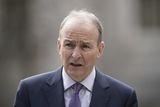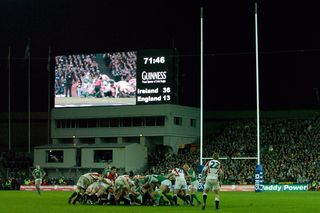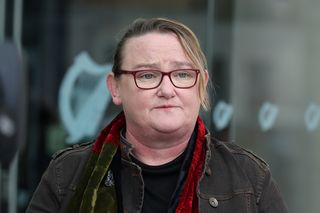Mortgages, loans, overdrafts and credit card debts - here's what the new State credit register will show
Consumers and lenders will be able to see details of loans and how they are performing.The new register will not show if someone has been recorded as a bankruptDebt judgments handed down by the courts are also set to be excludedRegister is a key reform identified by the bailout troika
(Stock photo)
Bankrupts will not be listed on a new State credit register designed to make lending safer.
However, the register will show the mortgages, loans, overdrafts and credit card debts of a normal family.
The Central Credit Register, overseen by the Central Bank, goes live from today.
Consumers and lenders will be able to see details of loans and how they are performing.
Some 300 lenders have been submitting details on consumer mortgages, personal loans, overdrafts and credit cards since last June.
Banks and credit unions are the main lenders submitting information to the register at present. The service is free for consumers to access at centralcreditregister.ie.
But there are a number of significant gaps in what is included despite the new service being in gestation for years.
The need for an official credit register was a key reform identified by the bailout troika of the European Commission, European Central Bank and International Monetary Fund in 2010.
But the new register will not show if someone has been recorded as a bankrupt.
No details of official debt deals done through the Insolvency Service of Ireland (ISI), and approved by the courts, will be listed. Nearly 2,000 people have been declared bankrupt since the ISI was set up in 2013, with another 4,000 being approved for debt deals.
Debt judgments handed down by the courts are also set to be excluded.
There are some 20,000 debt judgments handed down by the courts each year, but most of these are unregistered and not recorded anywhere, according to James Treacy, of credit reference agency Stubbs Gazette.
Utility bills that have not been paid, and unpaid tax owed to Revenue will also be outside the scope of the new Central Credit Register.
Information on moneylender loans and local authority mortgages will not be included in the first phase of the register, but this information is set to be collected from the end of this month, according to the Central Bank.
Legislative changes to the Credit Reporting Act 2013 are also now being rushed through by the Department of Finance to allow the capture of personal credit plans (PCPs) and hire purchase on the new register.
Around a third of new cars are funded by PCPs. Some €800m was advanced to motorists in 2016 through 33,000 PCP deals, the Competition and Consumer Protection Commission said this month. But it could be the end of the year before the amended legislation is in place to allow PCPs to be added to the register.
Dermott Jewell, of the Consumers' Association of Ireland, said the new register would have so many gaps in it that it would not be fit for purpose.
"It will simply not be fit for purpose. It needs to be right from the start, otherwise it is pointless. But it now looks like it will be full of gaps and holes," he said.
Mr Jewell said credit unions and banks would need to know if someone had been declared bankrupt, had a debt judgment against them, or owes money to Revenue before working out if they are a good bet for a loan.
Asked for a comment, the Central Bank said: "We will continue to keep the operation of the Central Credit Register under review and consider including additional information in the future, if required, in the context of the scope of the Credit Reporting Act 2013, individuals' data protection rights and in consultation with key stakeholders."
Join the Irish Independent WhatsApp channel
Stay up to date with all the latest news















